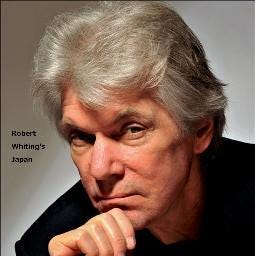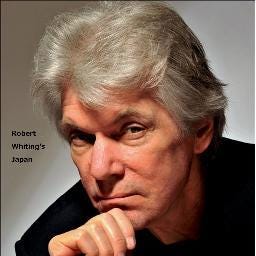Popularity of Japanese players reflects progress in race relations in America
CALIFORNIA — Is white-dominated America a racist country? Yes or No.
Black scholars would say yes, citing America’s history of slavery and the fact that black players were not allowed to play MLB baseball until 1947.
The U.S Government has made strides to correct this imbalance, with such programs as the Civil Rights Act of 1964 and the Affirmative Action law which came later, but discrimination still exists.
A black person showing up at the ER at 3 a.m. is likely to be thought a drug user. A white person? Not so much.
What about Asians?
In a survey last fall by Pew Research, 6 out of every 10 Asian-Americans have said they have been victims of discrimination because of their race or ethnicity.
Asians were subjected to numerous incidents of harassment during the Covid-19 pandemic, and have even been discriminated against in admissions to Harvard because their test scores are so superior to others.
In MLB there have been several examples. There was Chicago Cubs announcer Harry Caray making fun of Kosuke Fukudome with a mock Japanese accent, something we touched on in a previous column. Fans in the right field stands in Wrigley were pronouncing ‘Fukudome’ as ‘fuckadomee’ as a way of showing their displeasure for his disappointing batting statistics. This elicited protests from the Japan-America Society of Chicago.
In more recent years, we have had Los Angeles star Shohei Ohtani the subject of racism when Detroit Tigers color commentator Jack Morris used a faux-Japanese accent as Ohtani came to the plate in the top of the sixth inning of their game in Detroit.
Bally Sports Detroit play-by-play broadcaster Matt Shepard asked Morris what the Tigers should do with Ohtani coming up with Kurt Suzuki on second base in a tie game with two outs.
"Be very, very careful," Morris said.
But he pronounced it “beri beri kehfaru” as a Japanese with no experience in English might do, making fun of the poor English pronunciation.
Morris later apologized, but was suspended indefinitely by Bally Sports Detroit and his comments were condemned by the Tigers, as well. He later returned but the following year resigned from his position.
Then there was ESPN commentator Stephen A. Smith who famously said that Ohtani should not be face of the sport because he uses an interpreter. In a morning talk show he said that while he understands that baseball is an international sport, “when you talk about an audience gravitating to the tube or to the ballpark ... I don’t think it helps that the No. 1 face is a dude that needs an interpreter.”
Almost immediately, Smith — an African-American — was attacked for being racist. Experts said such language reflected deeper, insidious beliefs about who gets to represent America’s historical pastime.
Smith, who later apologized, tried to clarify his comments by saying he was “talking about the marketability and the promotion of the sport.”
But critics said such remarks still reflect exclusionary ideas, particularly in a sport that is considered so “traditionally American,” with discussion of a superstar who is Asian, a member of a race that has long been perceived as foreign.
Just last summer, Los Angeles-based Angels host Curtis Cook called Shohei Ohtani a “Jap,” in a discussion about Ohtani’s future, which by then did not seem to include the Angels. (This racial slur was popularized in the United States during World War II, and serves as a demeaning way to refer to people of Japanese origin.)
Upon hearing Cook’s use of the antiquated and offensive term, however, fans on Twitter rushed to Ohtani’s defense, resorting to insults of their own toward Cook.
However, things have gotten gradually better over the years.
Foreign players from other countries have been more and more able to gain a foothold in the public psyche.
Players like Boston superstar Papi Ortiz, from the Caribbean, have enjoyed tremendous success, and have done so without the use of translators.
And so have Japanese players, starting with pitcher Hideo Nomo, best known for his time with the Los Angeles Dodgers in the 1990s. Nomo opened the floodgates for Japanese players in the major leagues, sparking what was then referred to as “Nomomania,” with kids across the country trying to copy his signature tornado style windup. The monosyllabic Nomo, was equally non-communicative in English or Japanese, but Dodgers fans loved him nonetheless.
Good-natured slugger Hideki Matsui, always used an interpreter, but never turned down an interview request from U.S. media, He was so popular in his debut year with the New York Yankees in 2003 that he had some of the game’s top jersey sales.
Ichiro Suzuki, who retired as a Seattle Mariners icon in front of a sold-out crowd in Tokyo, could speak English well enough but nonetheless insisted on using an interpreter to communicate with reporters. He was responsible for a huge jump in ticket and merchandise sales.
Now, we have Ohtani with his incredible record-breaking $700 million contract. He always uses an interpreter and is beloved by millions. Indeed he is the face of Major League Baseball.
“The fact we’ve had someone become the face of MLB is an incredible move forward for the Asian and the Asian American community,” said said Stan Thangaraj, an associate professor of anthropology, at City College of New York, in an interview with NBC News. Thangaraj, is an authority on the impact of sports on Asian Americans and the author of “Desi Hoop Dreams: Pickup Basketball and the Making of Asian American Masculinity.”
It is fair to say that today well over half the Little Leaguers across the United States when asked who their favorite player and role model is, would immediately say “Shohei Ohtani.”
That’s progress.
I’m just waiting for Ohtani’s Hollywood debut. Perhaps in the next “Expendables” with Sylvester Stallone and Jason Statham?
END




